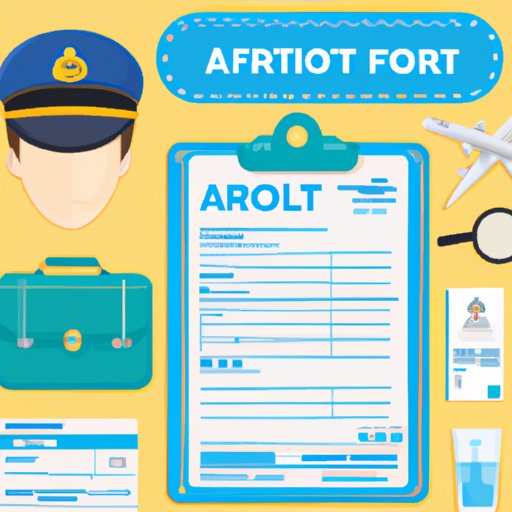Introduction
Becoming a flight attendant is one of the most sought-after jobs in the aviation industry. Not only does it provide a unique opportunity to travel and explore different parts of the world, but it also comes with many other advantages. From learning new skills to gaining valuable work experience, becoming a flight attendant can be a rewarding career choice. However, it is important to understand the qualifications and application process before applying for the job.

Overview of the Job and Qualifications
Flight attendants are responsible for providing customer service and safety during flights. They serve as a point of contact between passengers and the crew and ensure that all safety regulations are followed. To qualify for the job, applicants must have a high school diploma or equivalent, be at least 18 years old, and have excellent communication and customer service skills. Other requirements may vary depending on the airline and include fluency in multiple languages, knowledge of medical procedures, and prior experience in customer service.
In addition, flight attendants must be physically fit and able to pass a medical examination. According to a study conducted by the American Journal of Public Health, “flight attendants must meet height, weight, and vision requirements and pass medical tests for hearing acuity, strength and endurance, and cardiovascular function.”
Benefits of Becoming a Flight Attendant
Besides the thrill of traveling to different places, becoming a flight attendant comes with a number of benefits. Flight attendants enjoy competitive salaries and benefits such as free or discounted airfare, access to exclusive discounts, and even free hotel stays. Additionally, they gain valuable work experience in customer service, safety protocols, and problem-solving.
Flight attendants also get to meet people from all over the world and develop relationships with their colleagues. According to a survey conducted by the International Association of Flight Attendants, “86% of respondents said that they had formed strong relationships with their co-workers, and 77% felt like they were part of a team.”
Crafting a Resume
A well-written resume is an essential part of the application process. It should clearly outline your skills and qualifications, as well as any relevant experience you may have. When crafting your resume, make sure to highlight any customer service or hospitality experience, as well as any language skills you may possess. It is also important to include any certifications or trainings that may be relevant to the job.
When presenting yourself in your resume, emphasize your ability to work independently and as part of a team. Make sure to showcase your communication and problem-solving skills, as well as your willingness to learn and adapt to new situations. Finally, avoid using clichés and generic phrases, and instead focus on conveying your unique personality and qualifications.
Application Process
Once you have crafted a strong resume, you can begin the application process. The best place to look for open positions is on the website of the airlines you are interested in. Each airline will have its own application process, so it is important to read the instructions carefully and follow them accordingly. Some airlines may require additional information such as references or proof of language proficiency.
When submitting your application, make sure to double check all the information you have provided. You should also include a cover letter that outlines your interest in the job and highlights why you are the right candidate for the position. Once you have submitted your application, you will likely receive an email confirmation.
Interview Process
If your application is accepted, you will be invited to attend an interview. During the interview, the panel will assess your qualifications and ask questions about your experience and skills. They may also give you scenarios to test your problem-solving abilities. It is important to be prepared for the interview, so make sure to research the airline and brush up on your knowledge of the industry.
It is also important to dress professionally and maintain good eye contact throughout the interview. If you are asked a question that you do not know the answer to, do not be afraid to admit it. Instead, explain how you would go about finding the answer. Finally, remember to remain positive and show enthusiasm for the role.
Training Program
Once you have passed the interview, you will be invited to attend the training program. This typically includes classroom instruction, hands-on practice, and simulations of real-life scenarios. During the training, you will learn about safety procedures, customer service, and protocol. You will also get to practice emergency procedures and learn how to handle difficult situations.
It is important to take the training seriously and pay attention to the details. Make sure to ask questions when needed, and stay focused and alert during the sessions. Additionally, make sure to review the material at home and practice any new skills you have learned. This will help you gain a better understanding of the job and increase your chances of success.
Conclusion
Becoming a flight attendant is a great way to gain valuable work experience and travel the world. In order to apply for the job, applicants must meet certain qualifications and submit a well-crafted resume. The application process includes submitting an application, attending an interview, and completing a training program. With dedication and hard work, anyone can succeed in this exciting career.
(Note: Is this article not meeting your expectations? Do you have knowledge or insights to share? Unlock new opportunities and expand your reach by joining our authors team. Click Registration to join us and share your expertise with our readers.)
